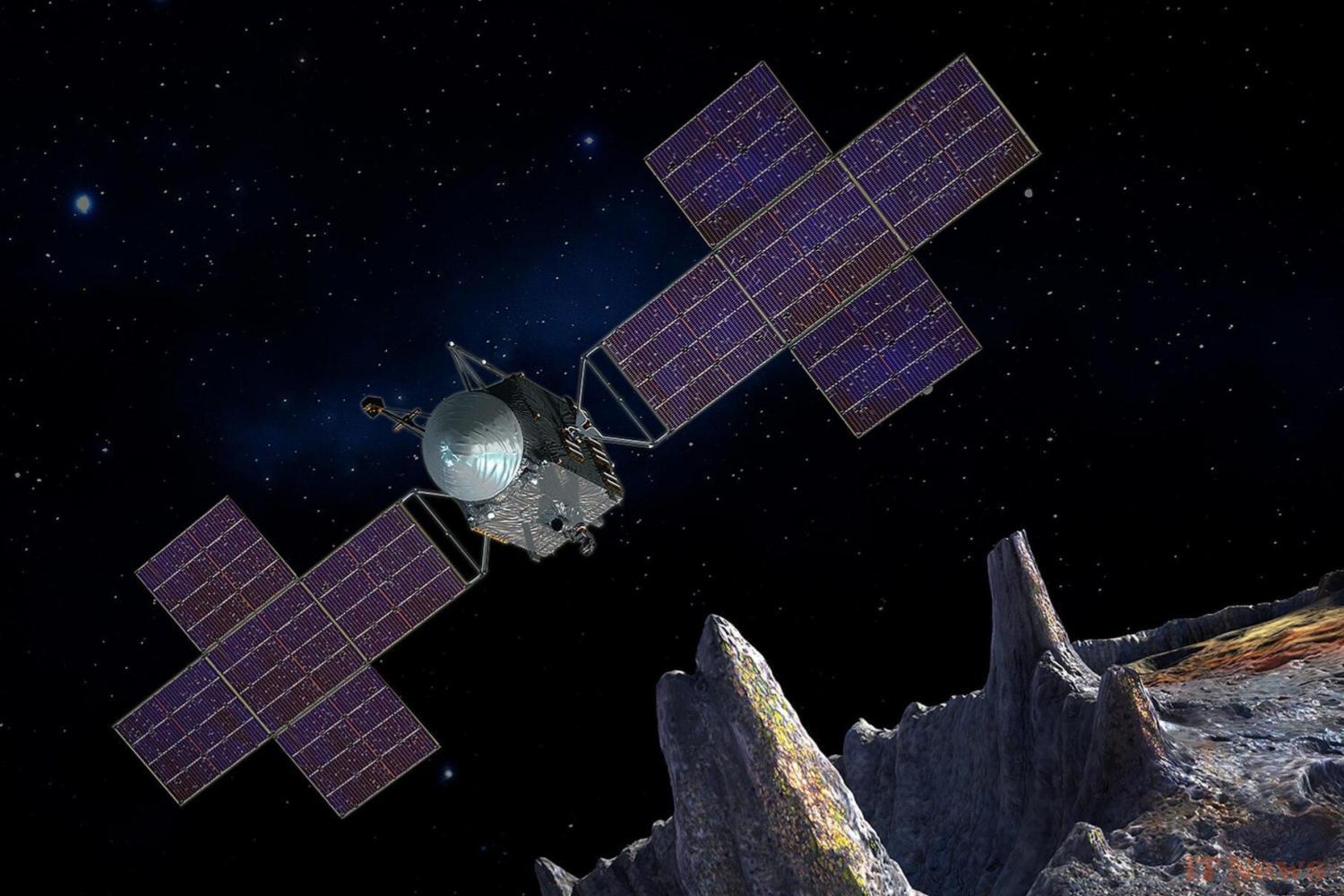NASA has announced that its Psyche probe, which set out to encounter a fascinating asteroid, is experiencing some problems during its long journey. Although the agency is trying to be reassuring, this is somewhat worrying news, given the mission's scientific potential.
More specifically, it's the probe's propulsion system, based on Hall effect motors, that appears to be causing the problem. This term refers to a class of motors that use a combination of electric and magnetic fields to trap electrons using the Hall effect, which gives the device its name. These electrons then ionize xenon atoms to positively charge them. These charged entities are then catapulted out of the chamber by the electric field.
This process generates very little thrust, typically in the order of a few tens or hundreds of millinewtons. For reference, the Raptor 3—the latest version of SpaceX's star engine—is capable of delivering about 2.75 million newtons of thrust! But Hall effect engines have another advantage that allows them to compensate for this difference: their extreme efficiency. Compared to conventional chemical engines, they use very little fuel to provide the same thrust. It will therefore never be possible to use them for takeoff from Earth due to the lack of raw power. On the other hand, they are ideal for allowing a craft to accelerate slowly but surely over a very long period of time, in order to reach the most remote regions of space, where the absence of friction with the air prevents the vehicle from slowing down.
Unfortunately, the last time the craft attempted to accelerate, a significant drop in pressure was observed in the line that carries the xenon to the thrusters. It suddenly dropped from about 2.5 bar to about 1.7 bar, and operators therefore decided to postpone the next burns until the source of the problem had been identified.
A serious problem, but not (yet) critical
For the moment, this does not seem to threaten the mission as a whole. The agency has relatively comfortable room for maneuver; it will be possible to postpone the next thrust phase until mid-June without impacting the probe's trajectory. This will give operators time to try to resolve the problem.
And even if they don't succeed by then, it won't be a disaster, because NASA has planned for this: there are two of the power line in question. This redundancy means that the mission won't immediately end if the first one ultimately fails. At the next burn, operators can simply decide to use the backup line if the first one is still acting up.
But even if it's not a critical malfunction, NASA would obviously prefer to avoid blowing this joker so early in the mission; even though it has already traveled more than 235 million kilometers since its launch in 2023, the probe still has a long way to go before reaching its destination. Early next year, it must return to Mars to perform a gravity-assist maneuver that will send it straight to its final destination: the asteroid Psyche, in the main asteroid belt between the Red Planet and Jupiter.
Psyche, the $10000000000000000
If this name rings a bell, it may be because it has often been presented in the press as “the $10 trillion asteroid” because of its composition: it is indeed full of precious metals such as gold and platinum. But it wasn't these resources that motivated NASA to build a craft specifically to go and meet it. The agency is primarily interested in it because it presents a giant scientific interest.
Unlike most asteroids, which are mostly rock and ice, Psyche 16 is mostly iron and nickel… like the core of Earth. For this reason, it is suspected of being the metallic core of a nascent planet. This is a particularly exciting hypothesis for planetary scientists. If this is true, Psyche 16 will immediately become an incredible open-air laboratory, capable of providing us with new and valuable information on the formation process of terrestrial planets like ours.
So we'll have to keep our fingers crossed that NASA can solve these problems so that the probe arrives at its destination in 2029 as planned, because it will undoubtedly bring us fascinating data on the origin of our own cradle.



0 Comments